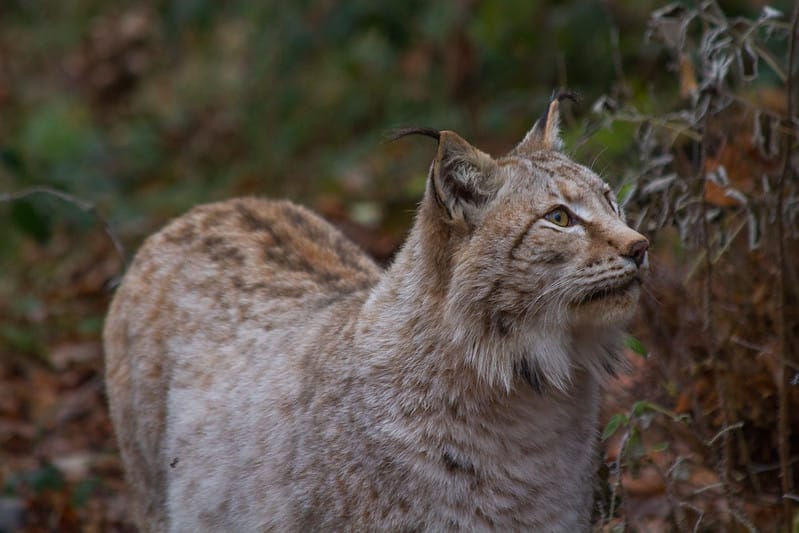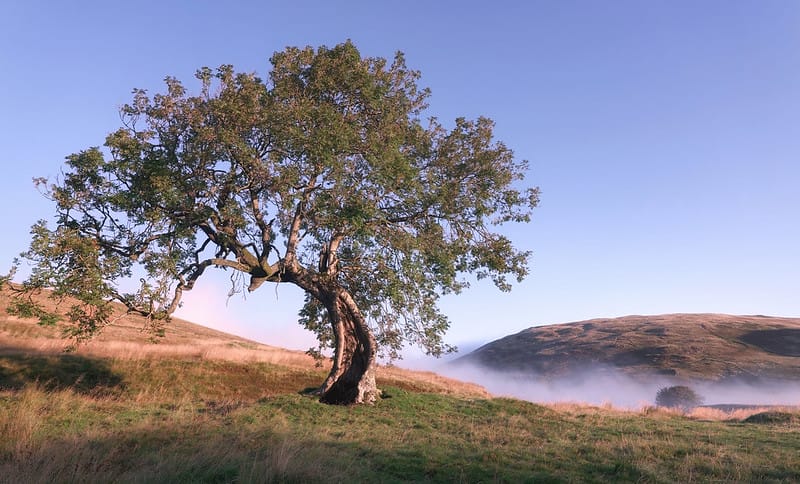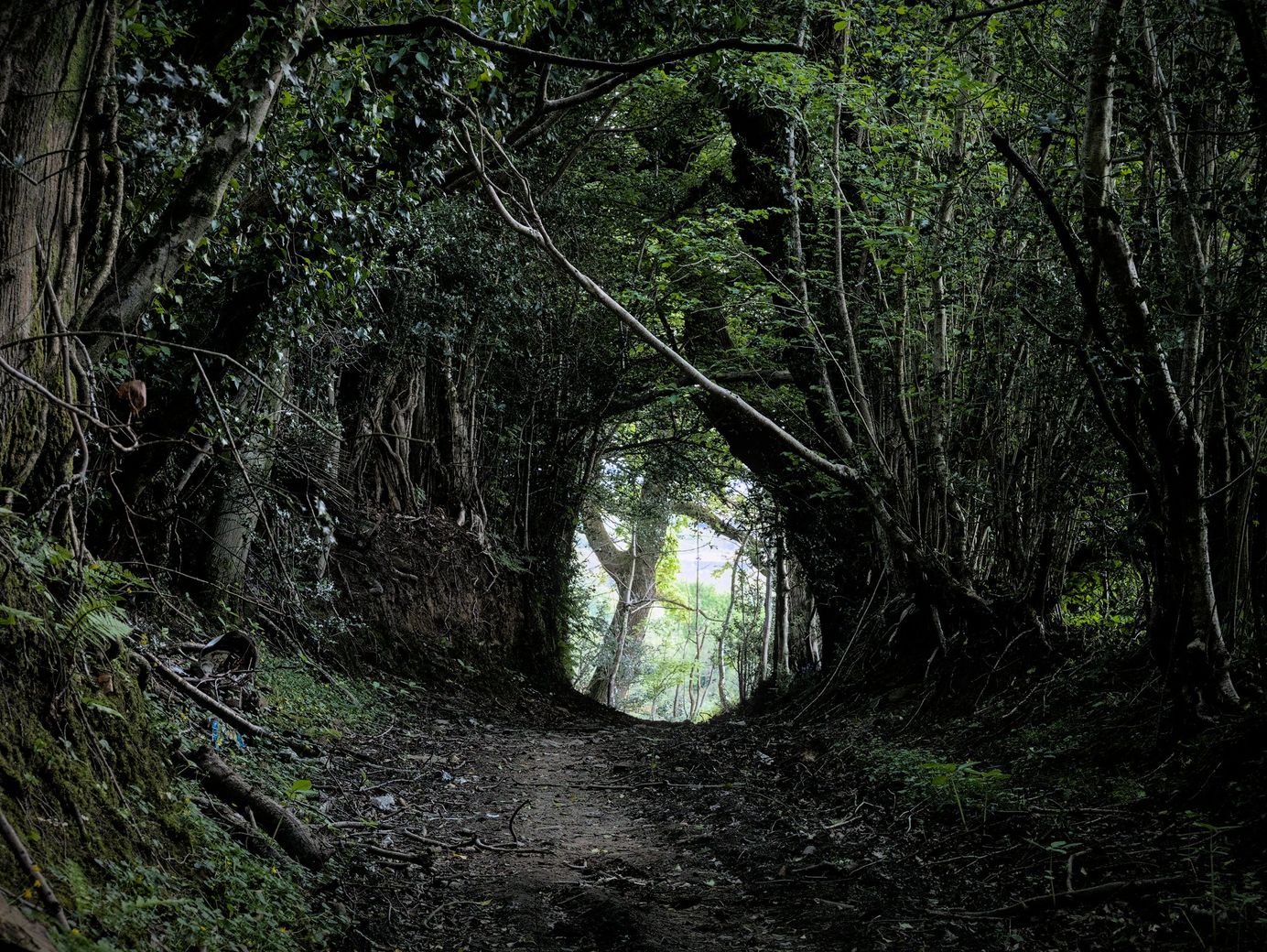
Ocean Protection & Holloway Ecology
The latest news on nature and conservation in Britain.
Welcome to Inkcap Journal, a newsletter about nature and conservation in Britain. Not a member? Sign up for a 30-day free trial.
National news
Oceans | The Scottish government has shelved its plans for Highly Protected Marine Areas (HPMAs) – a controversial proposal that would have seen human activity largely banned from around ten percent of Scottish waters. The plans attracted backlash from coastal communities, grassroots campaigners and sectors of the fishing industry, who feared the impacts of such restrictions on their livelihoods, reports the Guardian. Holyrood’s net-zero secretary, Màiri McAllan, said the government would “develop a new pathway” for marine protection during the summer. An editorial in the Scotsman suggested that the climbdown was “yet another example of bad governance”. The Times and the Herald also covered the news. Separately, Defra announced that the first three HPMAs had come into force in England, publishing three policy papers outlining their rationale for each case: North East of Farnes Deep, Allonby Bay and Dolphin Head. The Wildlife Trusts welcomed the news, but pointed out that they encompassed only 0.4% of English seas. The BBC covered the story.
Government | Lord Zac Goldsmith has quit as environment minister on the grounds that the government is uninterested in either nature or climate change. In an excoriating letter, he took aim at Rishi Sunak specifically. “The problem is not that the government is hostile to the environment, it is that you, our Prime Minister, are simply uninterested,” he wrote. His departure was widely covered, with articles in the Guardian, the Times and the Financial Times, among others. Sunak hinted that the real reason for Goldsmith’s resignation was his failure to apologise for criticising the House of Commons privileges committee – though Goldsmith insisted his decision had been a long time coming. Sunak, meanwhile, failed to dispel the ex-minister’s criticisms, as the news emerged that the government planned to drop its £11.6bn fund for combatting climate change and nature loss in developing countries. The prime minister also penned a column in the Sun this week accusing Just Stop Oil and Extinction Rebellion of undermining democracy and making life “truly miserable”.
It has been a privilege to have been able to make a difference to a cause I have been committed to for as long as I remember. But this govt’s apathy in the face of the greatest challenge we face makes continuing in my role untenable. Reluctantly I am therefore stepping down pic.twitter.com/KDJKN3i6ER
— Zac Goldsmith (@ZacGoldsmith) June 30, 2023
Species | The government has announced a new £25m Species Survival Fund, designed to protect animals like lapwings, water voles and adders through the creation and restoration of large-scale natural habitats. The money comes as the government attempts to meet its domestic and international targets on biodiversity, including a goal of halting the decline in species abundance by 2030. The scheme was promised in the government’s Environmental Improvement Plan earlier this year. The Times covered the news. Meanwhile, the Welsh government has once again delayed the creation of a new environmental watchdog, reports ENDS.
In other news:
- The RSPB is calling on the government to take immediate action to help struggling seabirds following a marine heatwave.
- On Monday, the record was broken for the warmest day on record – only for that record to be broken again on Tuesday. The Guardian was among the many outlets to cover the story.
- Tackling invasive non-native species now costs the UK government around £4bn a year, reports the Guardian.
Across the country
Northumberland | Lord Max Percy, the youngest son of the Duke and Duchess of Northumberland, has put Rothbury Estate on the market. At £35m, it is England’s largest land sale for three decades, reports This Is Money, and it is being marketed as “the single largest ringfenced carbon offsetting opportunity to come to the open market in England for decades”. The sale has caused local outrage. Rothbury councillor Steven Bridgett feared that the estate would end up in the hands of corporations intent on nothing but tree-planting. “It is a great shame that we do not have the same laws and grants available to us in England as they do in Scotland,” he said. “That would have enabled the local Rothbury community to take ownership of this estate and enhance and preserve this beautiful landscape for future generations.” The Chronicle and the Northumberland Gazette also covered the story.
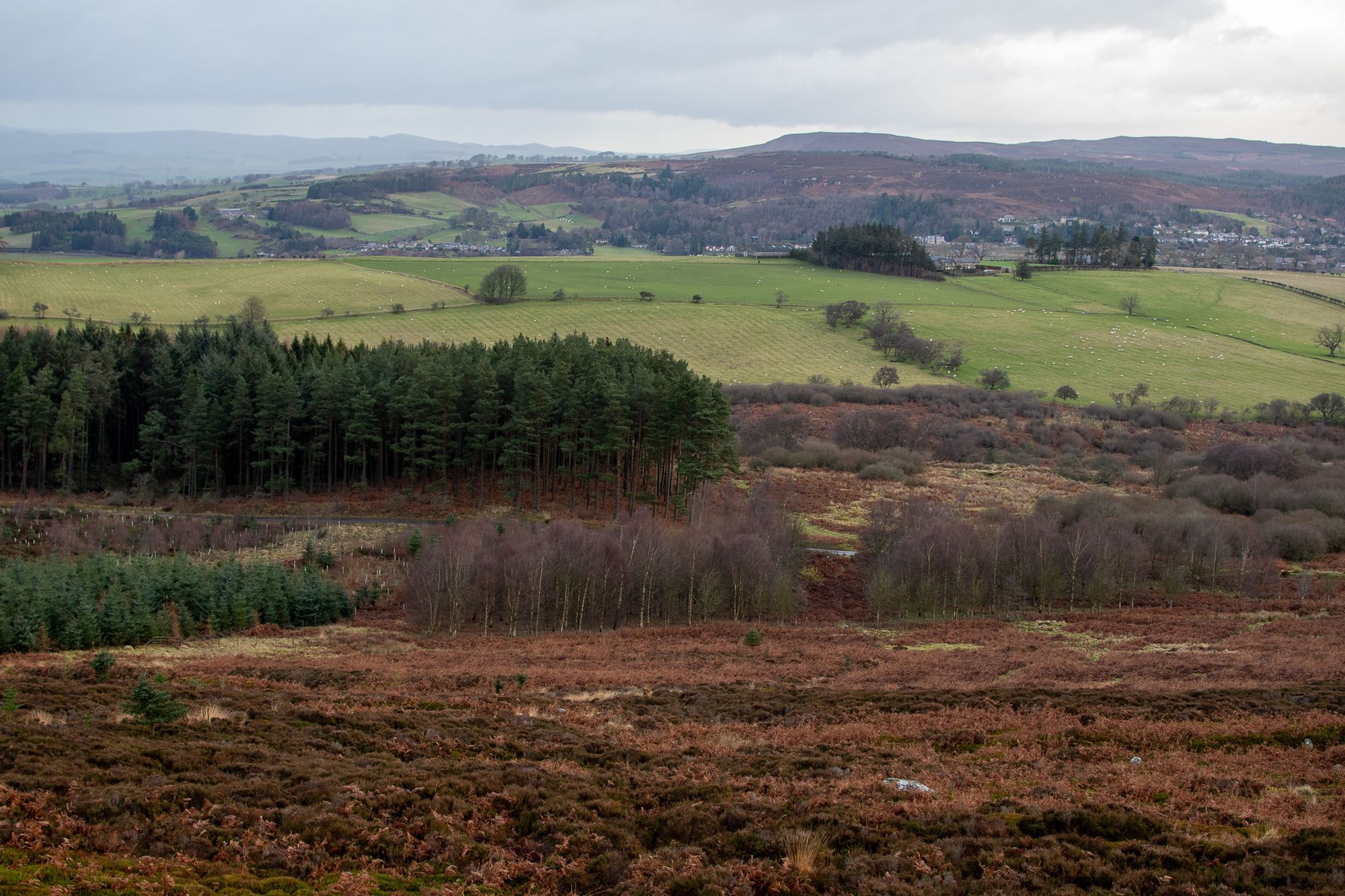
Eryri | A survey of four mountains in Snowdonia National Park has failed to uncover any evidence of the unusual Whiteworm Lichen, which had previously grown in clumps on Cadair Idris, leading to the conclusion that the species is now extinct in Wales. Natural Resources Wales blamed climate change and nitrogen pollution, generated by intensive agriculture and industry, for the loss. “Extinction is not just a threat for the future: it is happening all around us,” said Sam Bosanquet, the body’s specialist advisor on non-vascular plants.
Galloway | UNESCO has announced that the Galloway and South Ayrshire biosphere is to almost double in size. The area first received the designation in 2012, in recognition of its “world-class environment for people and nature”. This week, a delegation announced that its status would be extended for another ten years, with the boundaries expanded to include more land across southwest Scotland, including Alloway, the birthplace of Robert Burns. There are no new rules associated with the designation, which rather seeks to encourage co-operation to create a “better future for people and nature”. The BBC covered the story.
Elsewhere:
- Avocets have bred in North Yorkshire for the first time ever, reports the Yorkshire Post.
- The trees controversially chopped down by Plymouth Council must now remain in place for two months after birds nested in their trunks, reports the Telegraph.
- A campaign is underway to protect otters crossing a busy road in Bristol, reports the Bristol Post.
- A study has found that a wind turbine installation off the coast at Blyth in Northumberland has no negative impacts on dolphins, reports the Chronicle.
- The Manx Wildlife Trust has teamed up with UNESCO to map nature-friendly land including gardens and allotments, reports the BBC.
- An attempt by bee-eaters to nest in Norfolk has failed, reports BirdGuides.
- Toxic waste from an old landfill site may be leaking into Ironbridge Gorge, reports the Shropshire Star.
- Thames Water has been fined £3.3m after it discharged undiluted sewage into two rivers in Sussex and Surrey, killing more than a thousand fish, reports the BBC.
- A gamekeeper has avoided jail after pleading guilty to 19 offences in relation to the deaths of five goshawks in Suffolk, reports BirdGuides.
- Ramblers have been warned to keep watch for oak processionary moths after the Forestry Commission announced that the species had been found in Derbyshire. The Telegraph reported the news.
- The Thames was found to be polluted with phosphates, nitrates and harmful bacteria shortly before the Henley Royal Regatta, reports the BBC.
- A spring lek count in the Cairngorms found an additional 19 male capercaillies – the first increase in eight years.
- Prince William has announced plans to double the size of Wistman’s Wood in Dartmoor, reports the Times. In less positive royal news, the Guardian points to 18 deaths or disappearances of birds of prey on or near the Sandringham Estate since 2003.
- Plans are afoot to re-wiggle part of a Norfolk river, reports the BBC.
- A record number of greater butterfly orchids have been counted at a nature reserve in Gwynedd, reports In Your Area.
- Populations of goshawks in the New Forest are flourishing, reports the BBC.
Reports
Rainforest | Deer are a natural part of Scotland’s rainforest ecosystems – but rising numbers also pose a threat to their survival, according to a report published by Scottish Environment LINK, and commissioned by the Woodland Trust Scotland. While the government has devoted money towards deer management, much of this has been for fencing, which is expensive and ultimately ineffective. The report recommends a number of alternative measures for controlling the animals, including wider community stalking opportunities, support for new technologies and new funding streams. The Times and the Scotsman covered the story.
Conservation | What does a healthy habitat or population look like? That’s the question that Natural England is seeking to answer through its Defining Favourable Conservation Status project, which was set up in 2021. As part of this, the organisation has just published a raft of documents focusing on various habitats and species, including – deep breath – limestone pavement, wet woodland, seagrass beds, lowland meadow, lowland mixed deciduous woodland, moss carder bee and two species of bats. Separately, Natural England has also just published a policy paper on its local nature recovery strategies, explaining what they are and how they will be delivered.
Eagles | Avian flu appears to have had an impact on the breeding success of Scotland’s eagles, according to a report released by NatureScot. Analysis of data by the British Trust for Ornithology found that the proportion of golden eagle pairs that successfully reared young declined from 48% to 28% in 2021. For white-tailed eagles, success dropped from 67% to 45%. The largest declines for both species were witnessed on Lewis and Harris. The fact that complete nest failures were more common than partial successes points to the effects of pathogenic disease, rather than weather or prey availability. The BBC and the Times covered the findings.
Science
Education | Drawings by schoolchildren provide a stark insight into the state of ecological education, according to a study published in Plos One. Researchers at the University of Cambridge gathered 401 pictures, sketched by children aged 7-11 from both public and private schools, and analysed the species depicted. They found that mammals appeared most frequently, appearing in around 80% of drawings, followed by birds. While 90% of mammals and 70% of garden birds were identifiable to species level, the same could be said for only 19% of insects and 14% of herpetofauna. Drawings by state-school children contained higher plant richness, while more types of bird were drawn by those from private schools. The researchers suggested that this skew in ecological awareness might be addressed through “better integration of ecology within national curricula and more funding for green space within schools”.
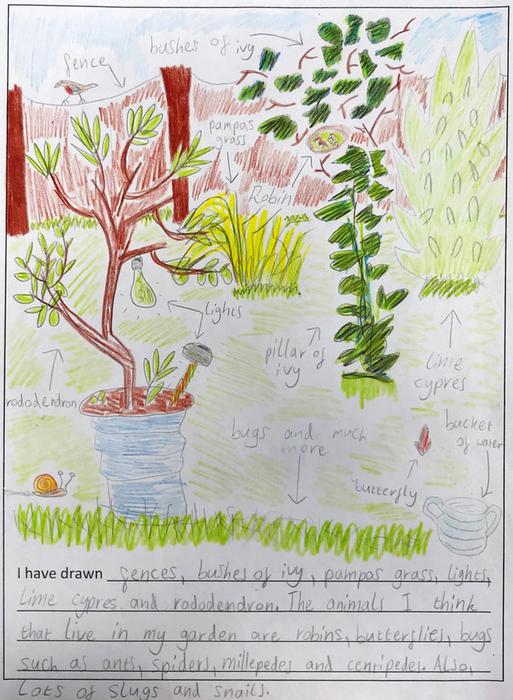
Heatwave | Warm weather can harm reproductive success in wildlife, according to a study published in Functional Ecology. Researchers at the Universities of Aberdeen and St Andrews looked at the impact of heatwaves on burying beetles. They found that, if the heatwave occurred before or after mating, it had no impact on reproductive success. However, for the beetles that mated during a heatwave, the impacts were stark: their offspring were smaller and less likely to survive. The implications extend the insect studied in this particular instance, according to the authors.
Agriculture | Nature-friendly farming may come at an economic cost, according to a study in PNAS. Scientists from across Europe looked at what happened when an intensive grassland-sunflower system in Southwest France adopted more biodiversity-friendly management. Reducing land use intensity drastically enhanced flower availability and wild bee diversity, and resulted in 17% higher revenue in neighbouring fields due to enhanced pollination. However, this did not exceed the economic costs of the reduced yield. “Our results therefore suggest that the transition to biodiversity-friendly farming may require additional public or private financial incentives,” the researchers concluded.
Driftwood
Holloways | Archaeologist Jim Leary writes about the magic of holloways in a feature for the Guardian, based upon his new book, Footmarks, which was published yesterday. Over time, these pathways – sunken into the ground through constant use – become distinct ecosystems. “Seeds from animal droppings lead to particular plant communities growing up along trails,” he writes. “Humans add to this too, spitting out crab-apple pips or blackberry seeds as we go, tossing plum or sloe stones to the side as we walk.” I read Footmarks recently and loved it for its seamless blend of deep history, ecology and human culture; if you see a copy at your local bookshop (or the other usual channels), I encourage you to give it a read.
SSSI | In last week’s digest, we covered the controversial decision by Natural England to designate West Penwith Moors and Downs in Cornwall as a site of special scientific interest (SSSI). This week, Natural England chair Tony Juniper published a blog that attempts to quell farmers’ fears around the change in status of this landscape. “I would like to reassure farmers that the designation does not mean sudden changes to agriculture on Penwith,” he writes. “In most of the SSSI land there will be no significant impact on management. In a minority (around 10 per cent of land) we will work with farmers to help them gradually reduce the amount of lime, fertiliser and pesticide run-off into the precious valley mires.”
Fungi | The British Ecological Society has published a short but fascinating article on Beatrix Potter, who, on top of her tales of Peter Rabbit, also wrote an academic paper about fungi, entitled “On the Germination of the Spores of Agarincineae”. Unfortunately, the paper never saw the light of day. She submitted the study to the Linnaen Society of London, which was closed to women at the time, and therefore never considered her paper. Today, at least, her illustrations of fungi are on display at several museums, and are still consulted by mycologists for their amazing level of accuracy. Another article published by the British Ecological Society this week looks at the concept of queer ecology, which “aims to disrupt the heteronormative ideas that have invaded our view of nature.”
Further reading:
- Journalist India Bourke visits the Knepp Estate and quizzes its aristocratic owners about the connections between rewilding and privilege, for a feature in the New Statesman.
- In the Observer, Ben Jacob writes about his mission to save Britain’s endangered orchids.
- The Financial Times covers the return of beavers to the capital.
- This Is Money visits Brewdog’s Lost Forest in the Highlands, guided by its founder James Watt.
- The Times profiles efforts to restore a temperate rainforest in Snowdonia, while the Guardian covers a similar project underway in Ireland.
- Two Little Owl chicks have been rescued after being found beneath the Pyramid stage during Glastonbury Festival, reports the BBC.
- The Guardian covers the campaign to make swift bricks compulsory in all new UK housing, which has since received the support of Tory MPs.
- Britain must say no to deep-sea mining, writes William Hague in the Times.
- The Guardian looks at people living their lives off-grid, in a feature that may tempt you to abscond to the woods.
- Carbon Brief has an in-depth Q&A about how trees benefit nature, people and climate.
Happy days
Sewer | A stretch of London’s new “Super Sewer” has been transformed into an underground garden, bedecked with glowing flowers. It looks very pretty – but before you get too excited, you should probably note that the plants are artificial, and in some cases consist of repurposed waste materials found along the Thames. It turns out that setting up a garden, in total darkness, 50m below ground, imposes some serious limitations. The BBC covered the story.
Subscribe to our newsletter
Members receive our premium weekly digest of nature news from across Britain.
Comments
Sign in or become a Inkcap Journal member to join the conversation.
Just enter your email below to get a log in link.


